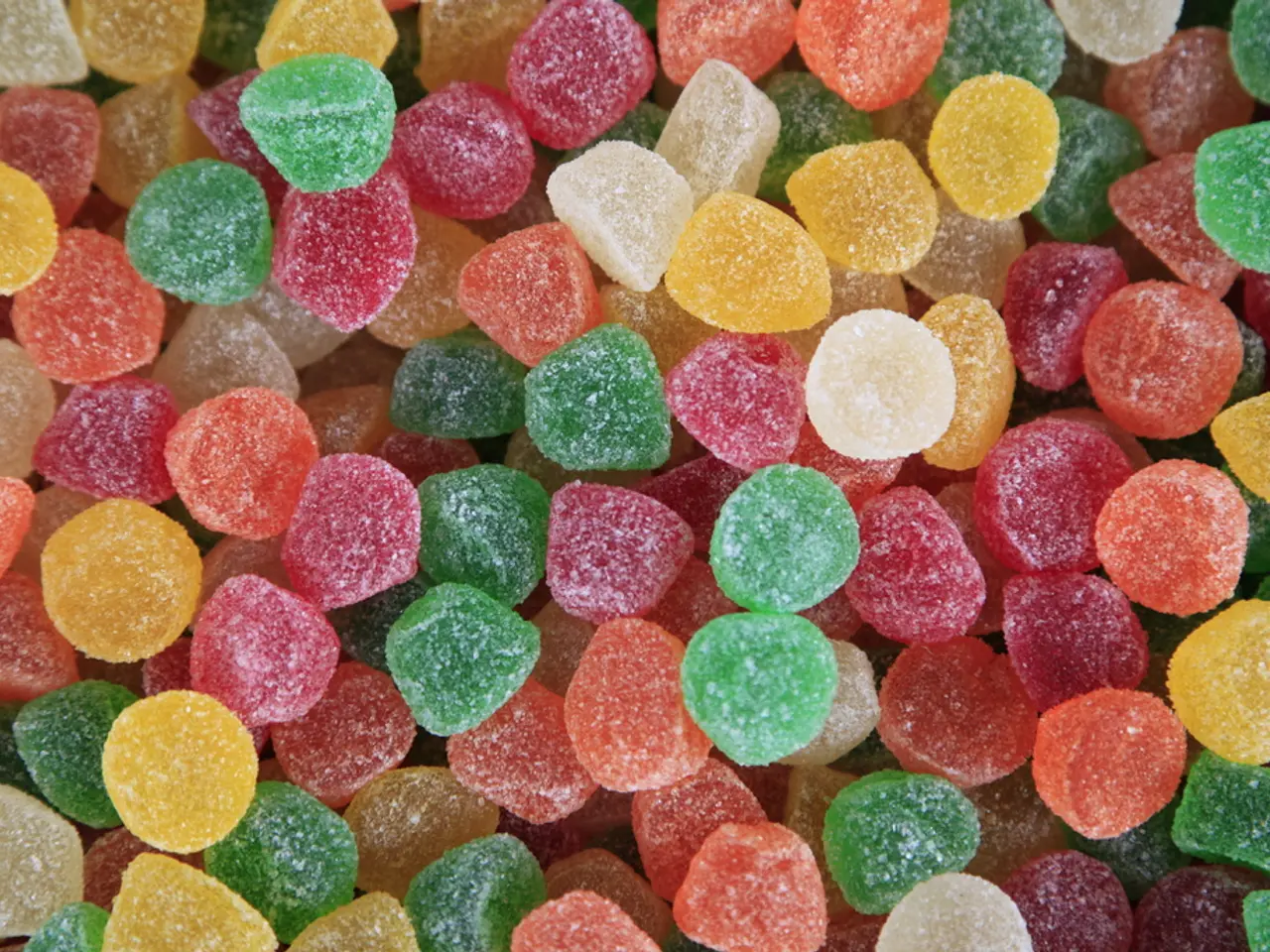Artificial sweetener linked to potential DNA damage, cancer risk
In a recent study published in the Journal of Toxicology and Environmental Health, researchers from North Carolina State University and the University of North Carolina at Chapel Hill have raised concerns about the safety of the artificial sweetener sucralose. The study found that a chemical found in sucralose, sucralose-6-acetate, may harm gut health, cause oxidative stress, inflammation, and potentially lead to cancer.
Dr. John Damianos, a hospital resident at Yale School of Medicine, notes that the study only studied sucralose-6-acetate in isolation. However, the findings are concerning, as they suggest that even low concentrations of this metabolite may be genotoxic, potentially damaging DNA and interfering with cellular processes.
The potential health risks associated with sucralose include DNA damage, disruption of gut health, and possible implications for carcinogenicity. In an in-vitro study, sucralose-6-acetate was shown to cause DNA strand breaks in intestinal cells and to increase gene activity related to inflammation. Additionally, animal studies have reported DNA damage in sperm cells exposed to sucralose, indicating oxidative stress and cellular impairment.
Human and animal studies also report that sucralose can shift the gut microbiome, leading to changes in microbial composition. Long-term intake of sucralose at acceptable daily intake levels has been linked to increased liver inflammation and gastrointestinal symptoms, which may impair gut function. Moreover, disruption of the gut microbiome by sucralose was linked to diminished effectiveness of cancer immunotherapy in mice, likely due to alteration of metabolites crucial for immune cell function.
While direct evidence for carcinogenicity in humans is lacking, the DNA damage and inflammation signals associated with sucralose-6-acetate raise concerns because chronic DNA damage and inflammation can increase cancer risk. Sucralose-induced gene expression changes involve inflammation, oxidative stress, and pathways linked to cancer risk.
Dr. Damianos encourages his patients to avoid highly processed foods and drinks to satisfy that sweet tooth. He advises increasing dietary fiber and healthy fats to blunt the insulin spike and recommends considering healthier low- or no sugar alternatives like seltzer water, fruits, date sugar, Yacon syrup, and coconut sugar. Dr. Danielle Leonardo, a board-certified specialist in internal medicine and medical oncology, believes that the study is another push toward confirming the hypothesis that artificial sweeteners may have carcinogenic effects. When choosing sugar substitutes, opting for stevia or monk fruit over artificial sweeteners is recommended.
The American Heart Association recommends no more than 6 teaspoons of sugar per day for women and 9 teaspoons a day per men. As the potential health risks associated with sucralose become clearer, it is important for the public to be more cautious in their consumption of artificial sweeteners and to consider safer alternatives. The next steps for research will be looking at the biological impact of sucralose when paired with acesulfame-K, another artificial sweetener that often accompanies sucralose in food products.
[1] Ebihara Y, et al. (2023). Sucralose-6-acetate induces DNA double-strand breaks and inflammatory gene expression in intestinal cells. Journal of Toxicology and Environmental Health. [2] Lee Y, et al. (2021). Sucralose induces oxidative stress in the testis of male rats. Food and Chemical Toxicology. [3] Kim J, et al. (2022). Sucralose alters the gut microbiome and reduces the efficacy of cancer immunotherapy in mice. Cancer Research. [4] Park J, et al. (2022). Sucralose-6-acetate is genotoxic in human intestinal cells. Environmental Health Perspectives. [5] Kim J, et al. (2022). Sucralose-induced gene expression changes in mice. Toxicological Sciences.
- The study in the Journal of Toxicology and Environmental Health has raised concerns about sucralose, an artificial sweetener, and its potential connection to cancer, due to the chemical sucralose-6-acetate causing oxidative stress, inflammation, and DNA damage.
- Dr. John Damianos suggests avoiding processed foods and drinks with artificial sweeteners, like sucralose, and recommends healthier alternatives such as seltzer water, fruits, date sugar, Yacon syrup, and coconut sugar, to decrease the risk of DNA damage and inflammation.
- Research studies have linked sucralose to long-term intake causing increased liver inflammation, gastrointestinal symptoms, and changes in gut microbiome, which may impact overall health-and-wellness, fitness-and-exercise, and potentially cancer risk.
- While human evidence for sucralose's carcinogenic effects is limited, DNA damage and inflammation signals associated with its metabolite, sucralose-6-acetate, are concerning because they can potentially increase cancer risk over time.
- Further research should examine the biological impact of sucralose when paired with acesulfame-K, another artificial sweetener that often appears in food products alongside sucralose, to understand their combined effects on various medical-conditions and health-and-wellness.




